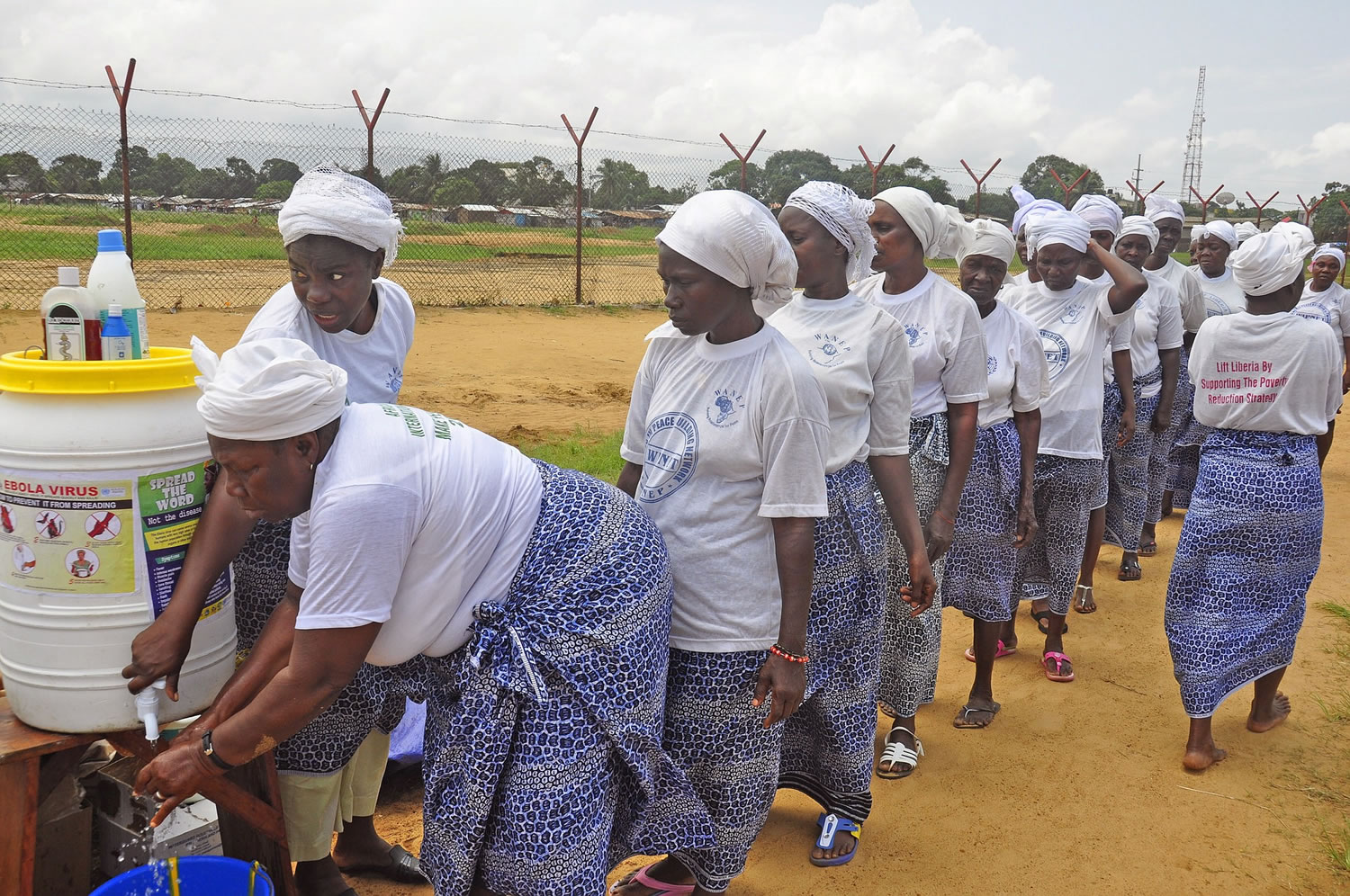JOHANNESBURG — Even the word was chilling: Ebola. The virus stole into the girl’s house in her small eastern Guinea town, invisible as death, and swiftly killed her grandmother and great-aunt. There were dark rumors everywhere that Ebola was witchcraft.
Soon her mother and aunt fell sick, too. Health workers with Doctors Without Borders came and talked to the family for a long time. Then they donned yellow heavy plastic suits, white plastic aprons, masks and bibs, and took 12-year-old Rose and her mother and aunt away in an ambulance.
And everybody knew that when they took you away, you never came back.
This is a time of terror in many West African communities as they face the world’s worst outbreak of one of the deadliest known diseases, easily spread through bodily fluids and difficult and dangerous to treat. Rose’s story, recounted by her nurse, exemplifies the fear — and sometimes bravery — that comes with the epidemic.
In the Doctors Without Borders isolation ward, things got worse for Rose’s family. Her mother, feeling depressed and hopeless, gave up, waiting for death. Her aunt was also sure she was going to die.
“No, you’re not,” Rose insisted.
Since the outbreak began in Guinea in February, nearly 730 people have died there and in Liberia and Sierra Leone, the World Health Organization said Thursday. The risks for health workers are high, and several senior doctors have died, including Sierra Leone’s top Ebola doctor, Sheik Umar Khan.
For some international health workers, the hardest thing is seeing children in cribs in the isolation units.
“The people inside the treatment center are completely alone. We can’t be there with them for hours on end. We have to go in and out,” said Monia Sayah, a Doctors Without Borders nurse who recently returned home to the United States after treating patients and counseling families for 11 weeks in Guinea.
Sayah said she was especially moved by the children. There was Rose, the 12-year-old who refused to give up. There were babies whom she sadly watched die. She saw no child younger than 4 survive Ebola.
Doctors Without Borders encourages family members of patients, especially relatives of small children, to don protective garments and go into the isolation ward to be with them. But some are too afraid.
With the outbreak raging out of control, Sierra Leone’s president, Ernest Bai Koroma, declared a state of emergency late Wednesday, quarantined areas affected by the virus, banned public gatherings, and deployed security forces to assist in house-to-house searches to find those with symptoms.
One of Sayah’s roles was to visit the homes of suspected victims and take people with her to treatment facilities. She encountered suspicion, mistrust and even hostility. Yet some understand that the doctors are there to help.
One village family had lost seven members before Sayah met with them. When she arrived at their house, she donned protective gear and carefully entered. She saw a sick woman, about 40 years old.
“You look at them and you talk to them and you can see if they are not going to make it,” Sayah said.
Some communities in Guinea blame humanitarian agencies and health workers for bringing the disease. But there has been progress recently in public education, Stulman said.
Catholic Relief Services is running education campaigns in the region.
When Rose’s mother and aunt were at their lowest points in the Doctors Without Borders isolation ward, the girl was at her most determinedly cheerful. She knew all the staff and patients by name. She chirped and chattered.
“She was very brave, very mature,” Sayah said.
When her mother or aunt lost hope, she coaxed them.
“They were very depressed and thought they were going to die,” Sayah said. But they recovered and eventually went home. Rose, still infectious, had to stay on in an isolation facility. So she appointed herself an unofficial medical assistant, hovering around helpfully, telling Sayah if she missed something.
Rose recovered and went home. But afterward, she came back every day to the place where she had nearly died.



